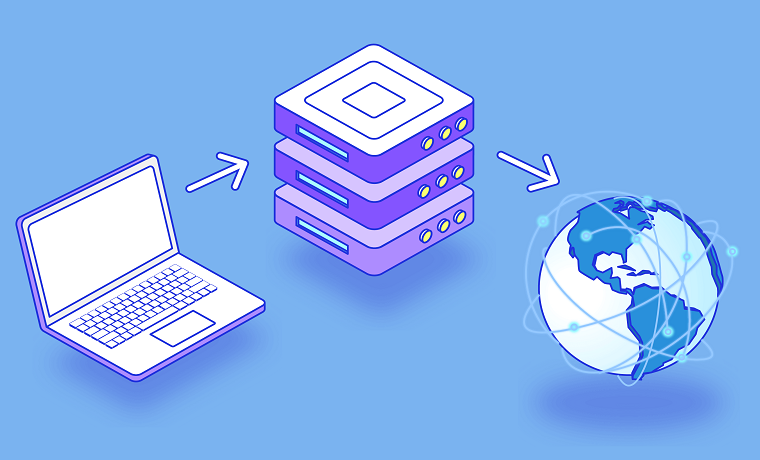In this digital age, understanding your market and competitors is not just important—it’s imperative. But how do you navigate the vast sea of online data without drowning in the process? Enter proxies, the unsung heroes of modern market research.
What are Proxies?
Let’s start with the basics. Proxies act as intermediaries between your device and the internet. When you connect to the internet through a proxy server, your requests are routed through that server, masking your IP address and providing anonymity. Think of it as a middleman standing between you and the websites you visit.
The Role of Proxies in Data Scraping
Data scraping involves extracting information from websites, often for analysis or research purposes. Proxies play a crucial role in this process by providing anonymity and preventing your IP address from being blocked by target websites. Without cheap proxies for scraping, repeated requests to a website from the same IP address can trigger anti-scraping measures, leading to your IP being blacklisted.
Choosing the Right Proxy Provider
Not all proxies are created equal. When selecting a proxy provider for your market research needs, consider factors such as:
- Reliability – Look for a provider with a reputation for uptime and minimal downtime.
- Speed – Fast proxies ensure efficient data retrieval, reducing scraping time.
- Geographic Coverage – Depending on your research scope, you may need proxies from specific locations.
- Datacenter vs. Residential Proxies – Datacenter proxies are faster and cheaper but may be more easily detected by target websites. Residential proxies, on the other hand, mimic real user behavior, offering greater stealth.
Leveraging Proxies for Competitive Analysis
Now that we understand the role of proxies, let’s explore how they can be used for competitive analysis:
1. Price Monitoring
With the help of proxies, you can scrape competitor websites to monitor their pricing strategies in real-time. This allows you to adjust your own pricing strategy accordingly, staying competitive in the market.
2. Product Research
Gaining insights into your competitors’ product offerings can help you identify gaps in the market or areas where you can differentiate your own products. Proxies enable you to scrape product information, reviews, and customer feedback from competitor websites.
3. Content Analysis
Analyzing the content produced by your competitors can provide valuable insights into their marketing strategies and target audience preferences. Proxies allow you to scrape blog posts, social media content, and other digital assets for analysis.
4. SEO Analysis
Understanding your competitors’ SEO strategies can help you improve your own search engine rankings. With proxies, you can scrape data such as keyword rankings, backlink profiles, and on-page optimization tactics used by competitors.
Best Practices for Ethical Data Scraping
While data scraping can provide valuable insights, it’s important to adhere to ethical guidelines and respect the terms of service of target websites. Here are some best practices to keep in mind:
- Respect Robots.txt – Check the target website’s robots.txt file for any crawling restrictions and abide by them.
- Limit Request Frequency – Avoid sending too many requests to a website in a short period, as this can overload the server and trigger anti-scraping measures.
- Use Captcha Solving Services – Some websites may require solving captchas to access data. Utilize captcha solving services to automate this process while scraping.
Overcoming Challenges in Proxy-based Market Research
While proxies offer numerous benefits for market research, there are also challenges that researchers may encounter along the way. Here’s how to overcome them:
1. IP Blocking
Some websites employ sophisticated anti-scraping measures that can detect and block proxy traffic. To overcome this challenge, consider rotating your proxies frequently or using residential proxies, which are less likely to be detected.
2. Proxy Reliability
Not all proxies are reliable, and downtime can disrupt your data scraping efforts. Choose a reputable proxy provider with a track record of reliability to minimize disruptions and ensure continuous data collection.
3. Legal and Ethical Considerations
Data scraping may raise legal and ethical concerns, particularly when scraping copyrighted or sensitive information. Before scraping any website, familiarize yourself with the legal implications and ensure compliance with relevant regulations and guidelines.
4. Data Quality
Scraped data may contain errors or inaccuracies, impacting the quality of your analysis. Implement data validation and cleansing techniques to identify and rectify any inconsistencies in the scraped data, ensuring the accuracy and reliability of your findings.
5. Cost
While proxies are a valuable resource, they come at a cost. Consider your budget constraints and explore different pricing plans and packages offered by proxy providers to find the best fit for your needs without breaking the bank.
Conclusion
So, as you embark on your market research endeavors, remember this: with proxies by your side, the sky’s the limit. Here’s to charting new horizons and redefining success in the ever-evolving world of business.

